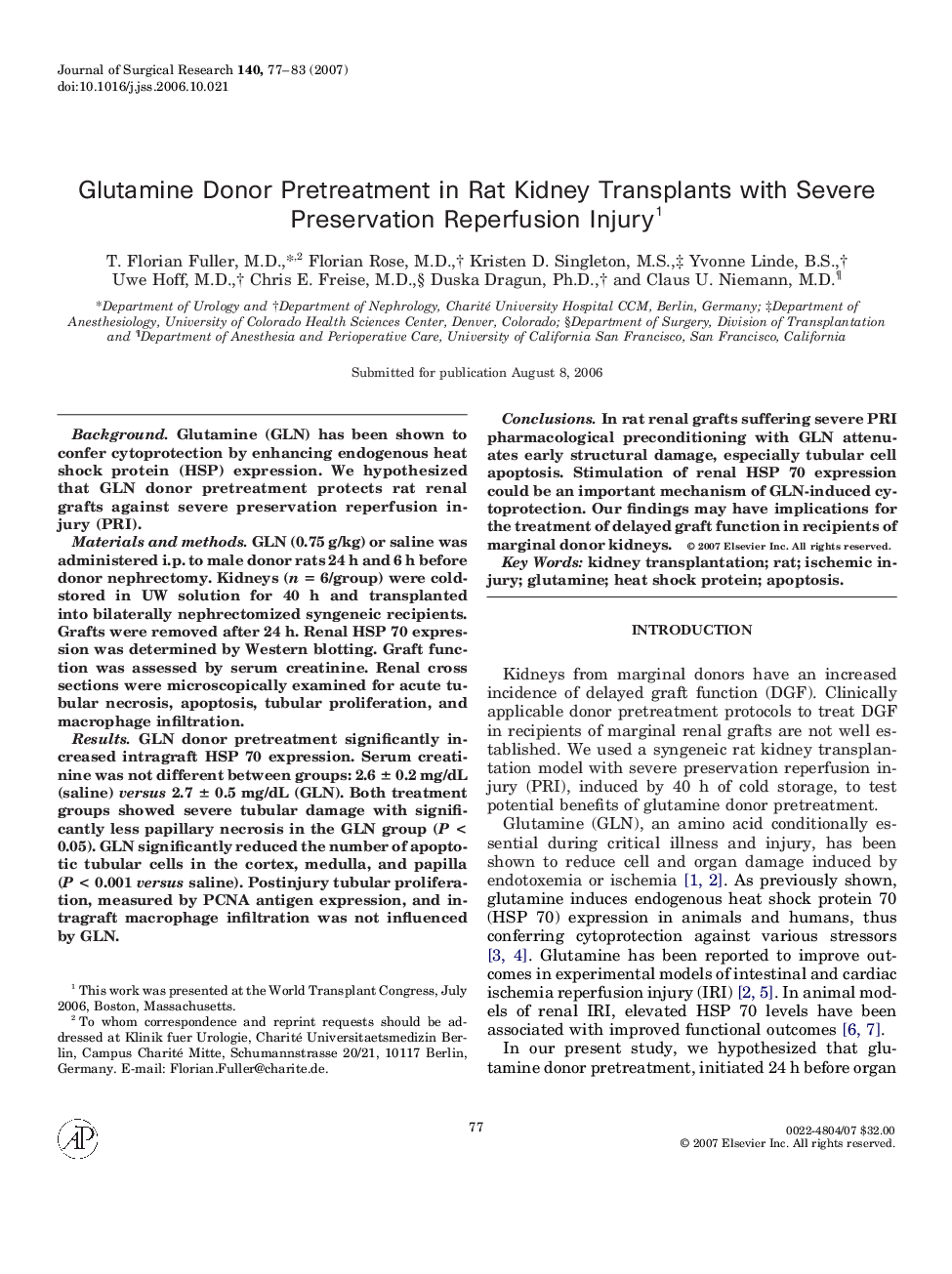| Article ID | Journal | Published Year | Pages | File Type |
|---|---|---|---|---|
| 4304587 | Journal of Surgical Research | 2007 | 7 Pages |
BackgroundGlutamine (GLN) has been shown to confer cytoprotection by enhancing endogenous heat shock protein (HSP) expression. We hypothesized that GLN donor pretreatment protects rat renal grafts against severe preservation reperfusion injury (PRI).Materials and methodsGLN (0.75 g/kg) or saline was administered i.p. to male donor rats 24 h and 6 h before donor nephrectomy. Kidneys (n = 6/group) were cold-stored in UW solution for 40 h and transplanted into bilaterally nephrectomized syngeneic recipients. Grafts were removed after 24 h. Renal HSP 70 expression was determined by Western blotting. Graft function was assessed by serum creatinine. Renal cross sections were microscopically examined for acute tubular necrosis, apoptosis, tubular proliferation, and macrophage infiltration.ResultsGLN donor pretreatment significantly increased intragraft HSP 70 expression. Serum creatinine was not different between groups: 2.6 ± 0.2 mg/dL (saline) versus 2.7 ± 0.5 mg/dL (GLN). Both treatment groups showed severe tubular damage with significantly less papillary necrosis in the GLN group (P < 0.05). GLN significantly reduced the number of apoptotic tubular cells in the cortex, medulla, and papilla (P < 0.001 versus saline). Postinjury tubular proliferation, measured by PCNA antigen expression, and intragraft macrophage infiltration was not influenced by GLN.ConclusionsIn rat renal grafts suffering severe PRI pharmacological preconditioning with GLN attenuates early structural damage, especially tubular cell apoptosis. Stimulation of renal HSP 70 expression could be an important mechanism of GLN-induced cytoprotection. Our findings may have implications for the treatment of delayed graft function in recipients of marginal donor kidneys.
